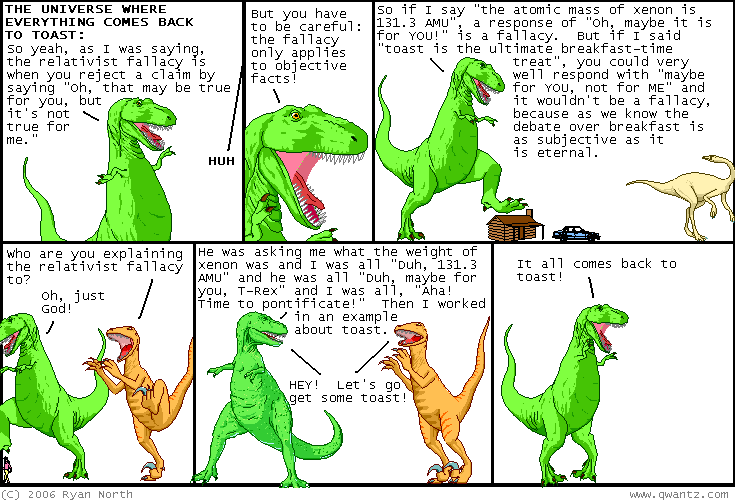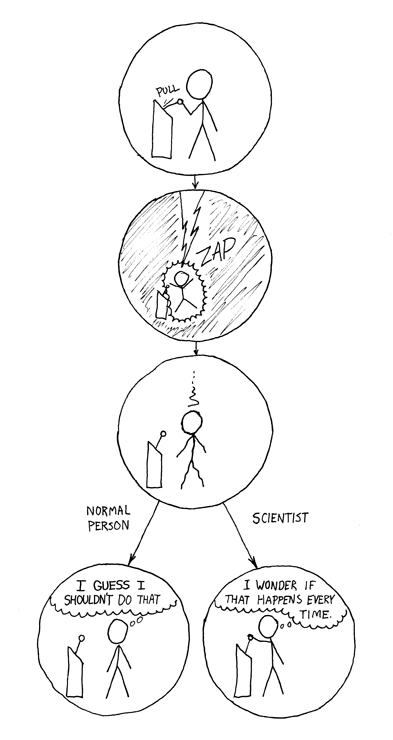Here are the answers to the group work handout on understanding arguments.
1. (P1) Fairdale has the best team.
(C) Fairdale will win the championship
2. (P1) The housing market is depressed.
(P2) Interest rates are low.
(C) It's a good time to buy a home.
3. (P1) China is guilty of extreme human rights abuses.
(P2) China refuses to implement democratic reforms.
(C) The U.S. should refuse to deal with the present Chinese government.
4. (P1) The revocation of the 55 mph speed limit has resulted in an increased number of auto fatalities.
(C) we must alleviate this problem with stricter speed limit enforcement.
5. (P1) The results of the Persian Gulf War were good.
(C) The U. S. military is both capable and competent.
6. (P1) Scientific discoveries are continually debunking religious myths.
(P2) Science provides the only hope for solving the many problems faced by humankind.
(C) Science provides a more accurate view of human life than does religion.
7. (P1) Jesse is one year old.
(P2) Most one-year-olds can walk.
(C) It follows that Jesse can walk.
8. (P1) I'm very good at my job.
(C) I deserve a raise.
9. (P1) Freedom of speech and expressions are essential to a democratic form of government.
(P2) As soon as we allow some censorship, it won't be long before censorship will be used to silence the opinions critical of the government.
(P3) Once we allow some censorship, we will have no more freedom than the Germans did under Hitler.
(C) We must resist all effort to allow the government to censor entertainment.
10. (P1) Maebe didn't show up for work today.
(P2) Maebe never missed work unless she was sick.
(C) Maebe is probably sick today.
11. (P1) The United States, as the most powerful nation in the world, has a moral obligation to give assistance to people who are subjected to inhumane treatment.
(P2) The ethnic Albanians were being persecuted in Kosovo.
(C) It was proper for the U.S. to become involved in the air campaign against Kosovo.
12. (P1) The last person we hired from Bayview Tech turned out to be a bad employee.
(C) I'm not willing to hire anybody else from that school again.
----------------
Hat tip: I took examples 1-8 (with some revisions) from
Beth Rosdatter's website, and examples 9-13 (with some revisions) from
Jon Young's website.














